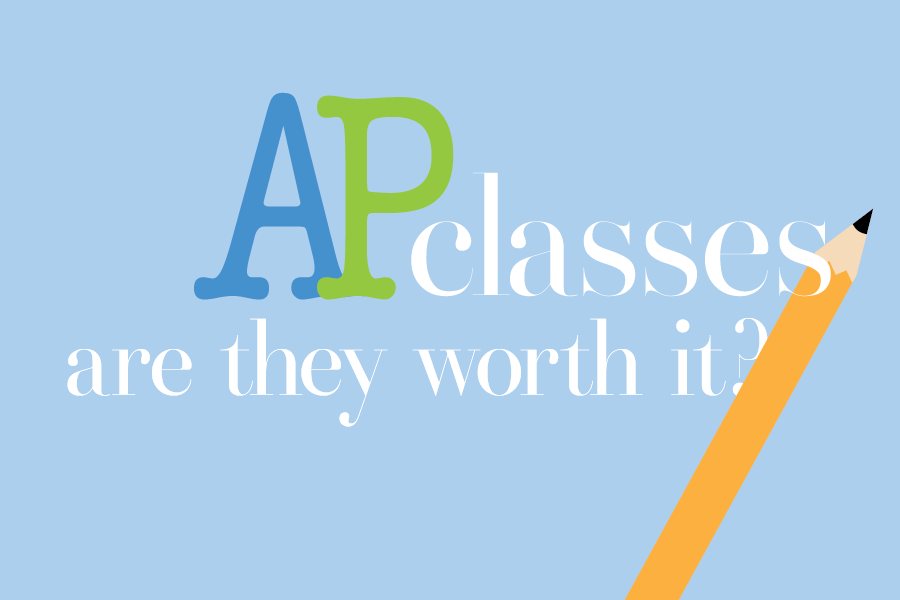AP classes- too good to be true?
May 6, 2016
Ask anyone trying to make the top 10 percent of their respective class, and they will tell you that taking Advanced Placement classes is hugely important to getting there.
Not only can these AP courses boost your high school Grade Point Average, but they also can give you hours of college credit. The same is true for dual credit classes, which can help you graduate with several college classes already completed.
Because of this, it is not surprising that many high schoolers struggle under the pressure of AP classes and exams to earn college credit. But with all the stress that comes with AP classes, is it truly worth it?
As the mom of a sophomore at Coppell High School and a sophomore at the University of Oklahoma, Ann Lason sees both the positives and negatives of AP classes.
“My daughter, Lauren, went to OU with 29 credits,” Mrs. Lason said. “There are pros and cons to that. You’re getting the class for much cheaper and you get a lot of the [basic classes] out of the way so you don’t have to take them in college, but it throws you into having to make a decision on your major much quicker than you want.”
With almost 30 credits, Lason had to make these potentially life-altering decisions concerning her major in December of her freshman year.
“If you know exactly what you want to do that’s great, but it’s nice to have that freshman year to get used to being away from home and used to college,” Mrs. Lason said. “For Lauren, there was a lot of stress about the decision.”
Another issue came up during the decision process; with so many credits already completed, Lauren was on track to graduate within three years.
“While a great financial thing for some people, Lauren wanted to stay in college for a full four years,” Mrs. Lason said. “Lauren had to double major in communications and International Studies with a minor in Spanish because she kicked so many credits in high school.”
Leah Witham graduated CHS last year and now is a freshman the Franciscan University of Steubenville. Like Lason, she has seen people run into problems after earning enormous amounts of AP credits.
“They are forced to graduate college early, without having been in college a full four years,” Witham said. “It can be upsetting to some people when they have to leave and miss out on a lot of the college experience.”
In addition to early decisions and graduation, students often get loaded with upper level classes while adjusting to college life. These rigorous courses can be overwhelming as the students transition to living on their own.
“Some students end up with a killer of a freshman semester because a lot of the easy classes are gone,” Mrs. Lason said. “Sometimes when you’re having to move away from home and get used to living on your own, it would be nice – and I’ve heard this from a multitude of people who have kids in college – to have English I or English II or some of those classes that just kind of give you time to assimilate into the lifestyle of a college student.”
College, while still intense, also allows much more time for students to study and focus on learning the subject matter instead of simply earning the grade.
“You’re not getting busywork all the time, so there’s more time in college to devote to studying,” Witham said. “I would’ve taken more away from the class now because it would be more specific to my major and I’ve learned more how to study. In high school, AP classes and AP tests are blown up into these huge things. In the grand scheme of things, it’s not even that big of a deal. Honestly, there’s no shame in coming into college with no credits and staying right on track.”
Still, there are just as many positives as there are negatives, and the benefits of taking AP classes should definitely not be discarded. For some students, graduating early or being able to fit a double major into their schedule is an amazing opportunity. For others, taking these higher level courses in high school gives them the tools they need to succeed in a college setting.
“There’s a high correlation between students taking at least one AP course in high school and in how well they do in college because of the exposure to college curriculum,” CHS counselor John Crook said. “You also don’t have to use the credit if you don’t feel comfortable with it. There’s no requirement that you have to send it in and get credit.”
Ultimately, it is up to each individual student to weigh these pros and cons and determine what is best for their future.

Meha Srivastav • May 9, 2016 at 9:11 pm
Great article!